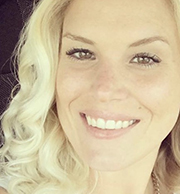
Prevention Through Connection
By Ashley Miranda | November 2022
 The world our students are living in is full of complex challenges and influences. As school counselors, protecting, teaching and just showing up and being there for our students is what we get out of bed and strive to do each and every day. Our job includes listening and connecting with our students, and in doing so, we can play a fundamental role in preventing student crises; because when students feel connected to their school, they are less likely to experience violence, poor mental health or other potentially traumatic events such as sexual exploitation or harassment.
The world our students are living in is full of complex challenges and influences. As school counselors, protecting, teaching and just showing up and being there for our students is what we get out of bed and strive to do each and every day. Our job includes listening and connecting with our students, and in doing so, we can play a fundamental role in preventing student crises; because when students feel connected to their school, they are less likely to experience violence, poor mental health or other potentially traumatic events such as sexual exploitation or harassment.One report found that the most positive protection for students is a connected school environment with counseling services, and that overall, students felt safer and more connected to their school when they felt their school counselor personally knew and responded to their concerns. The Centers for Disease Control and Prevention defines school connectedness as “when students feel that adults and peers in school care about their learning as well as about them as individuals,” and Brené Brown, in “The Gifts of Imperfection,” defines connection as “the energy that exists between people when they feel seen, heard, and valued; when they can give and receive without judgment; and when they derive sustenance and strength from the relationship. In my opinion, there is no one better positioned than school counselors to be the pillar of connection.
Prevention is all about being proactive and creating a safe and nurturing environment for our students to flourish. Beyond creating and maintaining positive, caring relationships with our students and helping them feel a level of connectedness to the school, the various strategies below provide some great evidence-based practices and ideas to get started bolstering your prevention programs.
- Providing group counseling, such as a Healthy Relationships Group utilizing the CDC’s Dating Matters: Strategies to Promote Healthy Teen Relationships, which includes multiple prevention components to promote healthy relationships and reduce behaviors that increase the risk of dating violence
- Psychoeducation and classroom lessons to increase student awareness and knowledge of harmful behaviors and to help cultivate attitudes and healthy coping skills that promote success, such as resiliency, grit, and a growth mindset
- Individual counseling with students identified to be at risk and providing interventions when appropriate
- Peer mediation/peer mentoring programs to enhance social support
- Facilitating open communication between students and caring adults
- Promoting trauma-informed practices advocating for faculty professional development on topics such as ACEs and identifying at-risk youth or warning signs
- Advocating for changes in the school and community, such as restorative justice programs to promote resilience, success, and equitable access and adopting “zero tolerance” policies regarding sex-based harassment, etc.
- Partnering with community resources and referring students and their families to appropriate support services and community agencies
- Family involvement: Providing information, education, consultation, and support to parents/guardians to increase familial involvement
“An ounce of prevention is worth a pound of cure,” so let us carry on, connecting with our students and providing the connection, support and education they need to succeed.
Contact Ashley Miranda, at-large member of the NJSCA board of directors, at Apritchard091@gmail.com.
Resources
- The School Counselor and Safe Schools and Crisis Response, ASCA Position Statement, 2019
- Fast Facts: Preventing Teen Dating Violence, Centers for Disease Control and Prevention, 2022
- The School Counselor’s Role in School Dropout Prevention, Journal of Counseling & Development, 2010
- The School Counselor and the Identification, Prevention and Intervention of Behaviors That Are Harmful and Place Students At-Risk, ASCA Position Statement, 2017